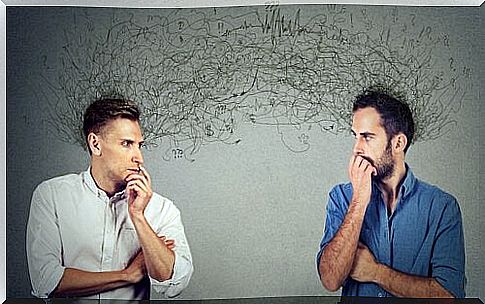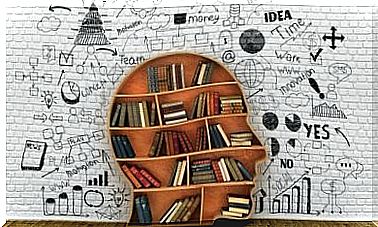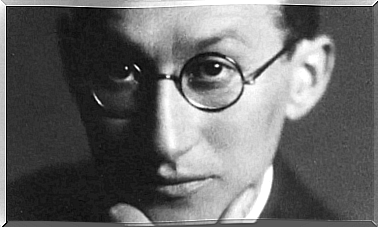How Do You Create Social Expectations?

You interact with all kinds of people every day. Some are acquaintances of yours while others are strangers. You have an idea of each of their personalities, an idea that you infer from the contact you have had with these people. Based on this, you create a number of social expectations about the behavior of each of these people.
Social psychology has been heavily involved in the study of expectations. This way we know that they are closely related to the impressions we have of others. Before we delve deeper into our social expectations, however, let’s first discuss the concept of ‘social perception’ .
Social perception
As humans, we are born completely dependent, and to survive we need complex social relationships. Our brains are therefore designed in such a way that they perceive and evaluate our social environment. A very important part of controlling our relationships is knowing what kind of people are part of our social environment. This is where social perception comes into play.
A simple and interesting model used to explain this phenomenon is Fiske’s model of social perception. According to this model , we immediately place everyone we meet, no matter how short this encounter is, in a certain category. And the person will stay in this category unless the relationship takes on new depth and we discover something that prompts us to change the category.
In addition, if the person piques our interest, we will try to demonstrate whether his behavior fits our category. If not, we will adjust and change the category until we have categorized or conceptualized the individual.

This is a very important process. Because if we didn’t go through it, managing our social relationships would be much more complicated. It is important to remember that while it is a quick and useful process, it is not an accurate one. People have very complex personalities that react strongly to the context, and so can hardly be categorized. However, this little “mental shortcut” is helpful in letting us know how to treat the people around us.
Once we have categorized our social environment and we have formed concepts of each of these people, we begin to create expectations. But what exactly are expectations?
Social expectations
Social expectations are the ideas we have about how someone in our social environment will behave in the future or in a specific situation. When we create an impression of someone, these expectations are related to the image we create. This helps us to get an idea of how we should behave or act when we are next to these people. It also helps us predict their behavior.
The usefulness of creating expectations about our relationships is pretty easy to guess. In an artificial environment, as the complex societies in which most of us live, predicting the behavior of others allows us to modify our own behavior. This is very useful in our social relationships. While not an accurate process, making a prediction and sometimes getting it wrong is better than never making a prediction and thus never getting it right.
It is important to be aware that these social expectations have a major influence on our own behavior. We don’t treat everyone the same, just as we don’t treat the same person the same in every situation. We can see this in many everyday situations.
In addition, we try to make others live up to our social expectations, by indirectly forcing them or by changing the perception we have of them. This process takes place in both directions. We are also aware of the expectations others have of us. We therefore try to adapt our behavior to meet these ideas.
A little review
In our lives we have a lot to do with social expectations. We actually continuously have expectations of others, just as others have of us. Because expectations play such a big role, we have a strong tendency to meet them. Breaking it can therefore generate uncertainty and fear. However, keep in mind that this is not an accurate process. Many of our expectations will not be met, just as many of our expectations will not be met.
An error in creating an expectation leads to three situations. First, the person who has a certain expectation will change his behavior to adapt to it. Second, the person who created the expectation will change their perception in order to believe that the other person’s behavior lives up to the expectation. And third, the correlation between expectation and behavior will be broken and thus seen as an error.

The first two scenarios avoid social conflict and manage to maintain a relationship early on. While this is positive in itself, it can lead to major problems in the long run. This is because in the first case, one changes his behavior to satisfy the other. This leads the other to generate a false concept of reality. In the second case, the person who created the expectation unconsciously lies to himself about how the other person works.
Adjust expectations for a closer bond
The third scenario causes the most fear. In the end, both parties are cheated and lose control of what happens. However, if the relationship overcomes or accepts the fear, it will become much more stable. For some relationships (eg with our neighbours), the first two scenarios are the most conducive. After all, there may not be a need for a long-term relationship or a close bond. However, it would be a real shame to behave like this to our closest friends or family.
How do you think you behave towards your expectations? How would you like to behave?









